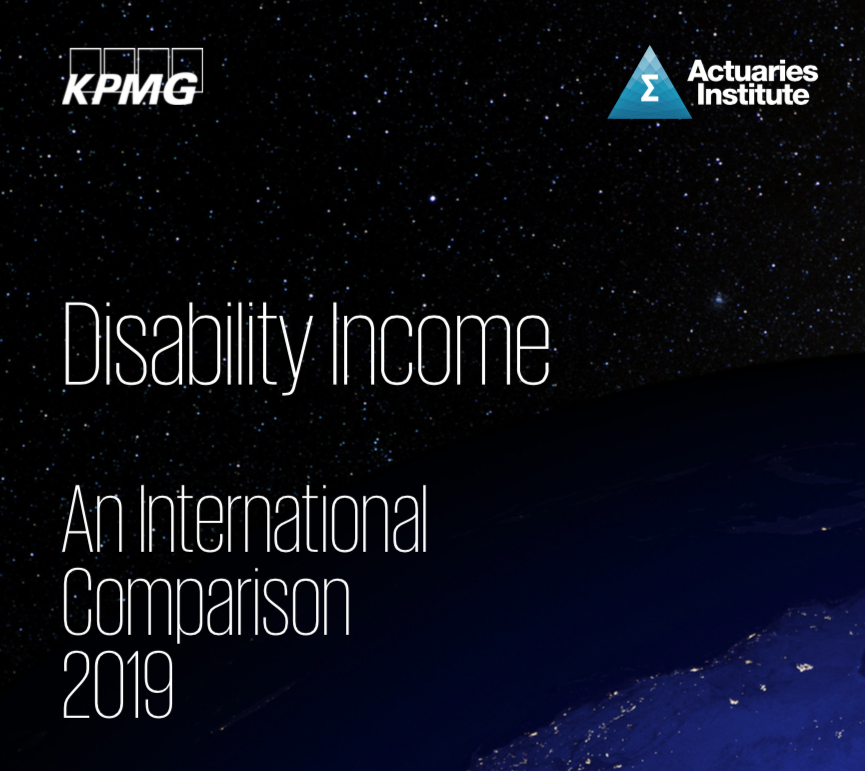Australia’s $5 billion disability income insurance sector needs urgent reform, according to the country’s Actuaries Institute, noting that failure to implement significant changes “…will reduce consumer access to affordable disability cover in the future”.
The institute also highlights in a media release that product design, rating, advice, risk management, governance and regulation must be reviewed and that global comparison shows liberal benefits in Australia could threaten long-term viability (see also: APRA Sets New Course for IP Sustainability).
It has established a taskforce to identify where critical reform is needed and commissioned KPMG to compile a report Disability Income, An International Comparison, to help start the debate about changes needed to bring about a sustainable long-term solution that supports consumers.
The institute says the report found the sector needs simpler products, a reduction of ‘bells and whistles’, a change to definitions, and a review of the benefits to encourage those who can, to return to better health as soon as possible.
“Modern life insurance provides valuable financial benefits for people who can’t earn an income due to injury or sickness,” says Ian Laughlin, convenor of the Actuaries Institute’s Disability Insurance Taskforce.

“Australia has a very competitive market and customers have been offered a smorgasbord of product features. However, they have also been subjected to multiple unanticipated premium increases.
“A decline in insurance company profitability despite these steep premium hikes has called into question the sustainability of disability income insurance in its current form, and suggests the potential for market failure,” Laughlin says. ”That raises real concerns for consumers, and the broader community, about future access to affordable DII cover.”
The organisation says it has drawn on the skills of almost 50 actuaries to support its DII taskforce. It has started liaising with regulators, and hopes to engage with the director community, insurance company management, advisers, product ratings agencies and consumer groups to drive significant, long-term industry changes. It will also review the professional requirements for actuaries in the disability income insurance business.
The media release says that the KPMG report finds that individual disability income insurance does not adequately support a policyholder’s move back into work. The report also acknowledges increased concerns by Australia’s regulator about product sustainability.
It notes that the Australian Prudential Regulation Authority announced in December that it had written to industry participants in response to ongoing heavy losses in the market.
… Australian DII products have more features, higher issue limits, longer benefit periods and shorter waiting times than products on offer in the US and UK …
The KPMG report states that the Australian retail market offers more comprehensive DII cover to a broader range of occupations and target markets than the US, UK and South Africa. “Australian DII products have more features, higher issue limits, longer benefit periods and shorter waiting times than products on offer in the US and UK”.
Another issue raised in the report is rehabilitation support in other markets. “Data for 2017 from the UK indicates 3,000 employees were provided with services that allowed them to return to work before they were eligible for any payments. This includes services like counselling or physiotherapy.
“By contrast, in Australia there are limits on what early rehabilitation services can be offered to policyholders, particularly when the policy is written through a member’s superannuation fund. It is estimated only 20 percent of claimants access rehabilitation programmes, which have the potential to help claimants return to work, and help the industry become more customer-centric by offering a more holistic approach,” the media release says.
The Actuaries Institute notes that the report found:
- Competitive pressure has resulted in products that are complex, making them difficult and expensive to administer
- These products can be problematic to manage from a claims perspective
- Guaranteed insurability has further aggravated sector problems by increasing the complexity of legacy business
- Insurers have responded with increased premiums, perpetuating potential anti-selective lapses leading to worse claims experiences and falling profit margins
Daniel Longden, KPMG Actuarial and Financial Risk Partner, says in the release: “Our research found that Australian workers tend to have higher payouts than their counterparts in comparable jurisdictions. A replacement rate of 75 percent of earnings is quite common in Australia with up to 80 percent replacement ratios available. By contrast replacement rates in the US are generally 50-65 percent of income, and in the UK 60-65 percent of income.
… It describes product proliferation as an “arms race” …
The media release also notes that KPMG make a number of observations about the DII industry in Australia. It describes product proliferation as an “arms race”.
“Financial advisers use comparison tools that score products on the number of features and the generosity of the definitions. The more features and more liberal the definitions, the higher the score and the greater the likelihood an adviser will recommend the product,” it says.
It also states more Australians are working more than one job, but DII policies typically cover income lost from only one occupation. It says the industry needs to better reflect the way Australians work.
The institute says its taskforce will consider KPMG’s observations about the DII industry in its ongoing work.
Click the image below to download the full PDF report.






